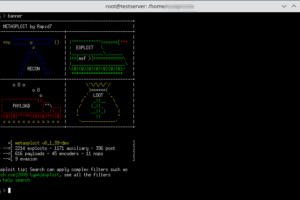White Hat Hacker vs Black Hat Hacker — What’s the Difference?
Do you think all hackers are evil and are trying to defraud others? This white hat vs black hat hackers article will help change your mind…
If you are thinking “white hat hacker vs black hat hacker — aren’t they the same?” then you’ve landed on the right article. Hackers can be good or bad depending on which color hat they decide to wear — and we don’t mean that in the sense of making a fashion statement!
There are good hackers who constantly try to protect our data, devices, websites, and systems. And of course, bad hackers, that do all sorts of notorious cybercrimes. But there are others who fall somewhere in between on the scale from good to bad. We covered six different types of hackers recently in another article.
For the purpose of this article, we’ll focus on covering the two main types of hackers, (i.e., white hat hacker vs black hat hacker). In it, we’ll explore what they do, why they do it, and what makes black hat hackers and white hat hackers similar or different in their approaches.
White Hat Hacker vs Black Hat Hacker
If you want to understand white hat vs black hat hackers quickly, this table will help. Later in the article, we have provided a detailed outline of both types of hackers, their intentions, and the activities they are involved in.
| Black Hat Hackers | White Hat Hackers |
| Their intentions are selfish or harmful in nature. | Their intentions are noble and often aim to benefit or protect others. |
| Hacking done by black hat hackers is illegal. | Hacking done by white hat hackers is legal. |
| They infiltrate or control websites, devices, or other systems without permission of the owner/ authorization. | They penetrate the system with the owner’s permission. Government agencies and other organizations hire white hats to test the software/devices and carry out non-harmful cyber attacks to find gaps in their security. |
| Search for the security vulnerabilities to exploit them. | They search for security vulnerabilities and offer suggestions and solutions to patch them. |
| Write malware to hack devices, servers, and websites. | Develop security software, tools, and techniques to detect and remove malware. |
| Take advantage of users’ lack of awareness about cyber threats to manipulate or defraud them with various phishing techniques. | Educate people about cybersecurity threats and risks, as well as ways to mitigate them. |
| Deploy ransomware and spyware attacks to blackmail individuals/organizations. | Develop tools and contingency plans to help people deal with ransomware and spyware attacks without paying extortion money. |
| Steal confidential data that they can use for cybercrime activities or sell to other attackers on the dark web. | Aim to help companies protect sensitive data by strengthening their cyber defenses. |
| Some countries’ governments employ them to deploy cyber attacks, steal confidential data, espionage, and cause political unrest in their enemy counties. These are known as nation-state actors. | Many local, state and national governments employ white hats to protect their servers, websites, databases, and other IT infrastructure. |
What Is a Black Hat Hacker?

A black hat hacker more closely resembles the stereotypical media portrayals of hackers — but they don’t necessarily wear hoodies or live in their parents’ basements. Black hats are the people who notoriously use their technical skills to cause harm and defraud others. They usually have expertise and knowledge on how to break into computer networks, conduct various cyberattacks, write malware, and bypass security protocols. They get into systems without the owners’ permission, and their intentions are not pure.
But why do black hat hackers do what they do? Black hat hackers’ motives often include:
- Trying to make money,
- Ruining someone’s reputation for revenge,
- Proving their religion/social extremist views,
- Working on political agendas, and
- Gaining notoriety.
Some black hat hackers hack just to create chaos and panic. In some cases, it seems like black hat hackers get sadistic pleasure and enjoy ruining a person or company’s reputation, causing disruption in the government’s activities, or destroying important data. Some of them can be addicted to hacking and get a sense of achievement when they hack a system or defraud someone.
What Black Hat Hackers Do
These are some activities in which black hat hackers are typically involved with:
Write Malware and Other Malicious Code
Malware means malicious software. Some of the most commonly used malware types are:
- Viruses,
- Trojan horses,
- Computer worms,
- Botnets,
- Rootkits.
Black hat hackers develop and distribute the malware to weaken a system or device’s security posture.
Deploy Phishing Attacks
To spread malware or defraud people, the black hat hackers execute various social engineering attacks to trick or manipulate people into doing something they shouldn’t. A few examples include:
- Sending phishing emails or SMS messages impersonating the person, company, or institution victims’ trust.
- Asking for money transfers due to fake emergencies or phony charity donations.
- Trying to get people to download fake products or services.
- Hiding malware in email attachments or links.
So, when comparing white hat vs black hat hackers, the former creates tools to detect the phishing scams, and the latter employs phishing tactics to carry out cybercrimes.
Exploit the Security Vulnerabilities
Vulnerabilities mean bugs in software or weak areas in IT systems that hackers can use as an entry point. But did you know that there are actually lists of common vulnerabilities that can be found in the public domain? One such example is the list of common security vulnerabilities and exposures from MITRE.
So, how does one compare a black hat hacker vs a white hat hacker in this area? Black hat hackers are always in search of these vulnerabilities to find ways to exploit them for their own gain. So, people who use outdated versions of operating systems, software, plugins, themes, or apps are the soft targets that black hat hackers love to attack. White hat hackers also hunt for software bugs, but their intention is to help software publishers and device manufacturers to patch security holes and fix the vulnerabilities.
Conduct Social Engineering Scams
Black hat hackers make fake social media profiles of the people you trust to manipulate you to reveal confidential, personal, or financial information which they misuse for fraudulent purposes. They might also hack social media profiles and send links or attachments containing malware to the victim’s contacts. Black hat hackers also use the information you disclose on social media to guess your credentials to bypass security mechanisms.
Blackmail Victims Using Ransomware and Spyware
Black hat hackers insert the ransomware or spyware in their targets’ devices. They use ransomware to encrypt important data or lock device and then demand the ransom to give back access. Or they may use spyware to monitor their targets’ actions. This type of malware can take screenshots of the users’ activities or give access to their devices’ screens to the hacker for remote viewing/accessing.
Black hat hackers may choose to blackmail victims, threating to leak their confidential data to the public if they don’t pay the extortion money. Some of the types of sensitive data they threaten to expose include:
- Personal or business files,
- Documents,
- Photos,
- Videos, and
- Intellectual property.
Carry Out Political Agendas
Some black hat hackers do political espionage to steal confidential research or data regarding the election, environment, military, treaties with other nations, etc. They often release such information to the public to cause political unrest in the country or blackmail key officials in government.
They also deploy DDoS attacks on government websites and servers to cause operational disruptions and general mayhem.
Unfortunately, some countries officially hire black hat hackers for political espionage or execute cyberattacks on the rival country’s servers. Countries like Iran, China, and Russia are infamous for these kinds of tactics.
Sell Your Sensitive or Confidential Data
Some hackers steal user data by penetrating leaky databases or using malware. Then they sell this data on the dark web. But who buys it? Other black hat hackers use this data to execute various identity theft or financial fraud schemes. Even online advertisers and marketers are also interested in such data to craft targeted advertising or send spam emails.
Some black hat hackers target businesses’ servers to steal confidential information like:
- Key customers, suppliers, vendors,
- Pricing information,
- Data regarding future financial and marking planning,
- Technical documents and intellectual property,
- Trade secrets, etc.
They may choose to use this data themselves, or they may opt to sell it to other cybercriminals or even your competitors.
What Is a White Hat Hacker?

These are the good hackers that use their technical skills to protect the world from the black hat hackers. White hat hackers are also known as “ethical hackers.” They’re equally talented IT professionals who possess degrees and certifications in cybersecurity and ethical hacking. White hat hackers employ the same hacking techniques as black hat hackers, but they do so legally and with the authorization or permission of the system owners.
You may be surprised to know just how common white hat hackers are. White hat hackers often can be found in the roles of security specialists, information security analysts, pentesters, and cybersecurity researchers. They work as independent consultants or freelancers as well. You might even have one or two as colleagues at your company.
White hat hackers’ intentions are to:
- Educate users about various cyber threats and ways to prevent them.
- Identify vulnerabilities and exploits in applications and infrastructure so organizations can fix them.
- Help organizations strengthen their overall security posture.
- Develop software that detects and removes malware.
- Make contingency plans in the event of a cyber attack.
What White Hat Hackers Do
Now that we know what white hat hackers are, let’s explore some of the activities white hat hackers are typically involved with:
Penetration Testing
In penetration testing, the white hat hackers test a computer system, software, network, or web application to find bugs or security vulnerabilities. But unlike black hat hackers, white hats do this with the owner’s permission.
To discover weak security spots, ethical hackers try to break into all the entry points or deploy different types of cyber attacks on the system without harming it. Basically, they try to identify security vulnerabilities so they can be fixed before black hat hackers can exploit them. White hat hackers do penetration testing (pen testing) manually or by using various tools and software.
Develop Security Products
Some white hat hackers are programmers who develop security products like antivirus, antimalware, antispyware, firewalls, security extensions for browsers, honeypots, and data filters. White hat hackers also develop tools and techniques for websites to identify and mitigate cyber attacks like:
- DDoS attacks,
- Brute force attacks,
- Cross-site scripting, and
- SQL injections.
Help Companies Be Compliant
The companies handling users’ sensitive data must adhere to the security guidelines outlined in acts like HIPAA, PCI DSS, GDPR, etc. White hat hackers make sure the companies are compliant with the latest laws and the security standards required for the industry. This helps those organizations retain and grow the trust of their customers and avoid noncompliance fines.
Educate Users about Cybersecurity
White hat hackers are often academics or researchers who educate users about how to identify and prevent cyber attacks. They also may develop contingency plans that companies and organizations can use in the event of a crisis.
Wrapping Up the Topic of White Hat Hacker vs Black Hat Hacker
Hackers can be a dreadful villain or a superhero that saves the world! If you think from a different perspective, black hat hackers challenge the cybersecurity industry to evolve and strive for new security tactics constantly. And not all bad guys stay bad — some of the most famous black hat hackers have become white hat hackers!
Now that you know the key points of the topic of white hat vs black hat hackers, we hope the next time you encounter the word “hacker” that you won’t immediately draw a negative picture of the hoodie guy in your mind. Instead, we hope you’ll pause and try to find out what type of hacker someone is before coming to a specific conclusion.














 (18 votes, average: 4.78 out of 5)
(18 votes, average: 4.78 out of 5)






2018 Top 100 Ecommerce Retailers Benchmark Study
in Web Security5 Ridiculous (But Real) Reasons IoT Security is Critical
in IoTComodo CA is now Sectigo: FAQs
in SectigoStore8 Crucial Tips To Secure Your WordPress Website
in WordPress SecurityWhat is Always on SSL (AOSSL) and Why Do All Websites Need It?
in Encryption Web SecurityHow to Install SSL Certificates on WordPress: The Ultimate Migration Guide
in Encryption Web Security WordPress SecurityThe 7 Biggest Data Breaches of All Time
in Web SecurityHashing vs Encryption — The Big Players of the Cyber Security World
in EncryptionHow to Tell If a Website is Legit in 10 Easy Steps
in Web SecurityWhat Is OWASP? What Are the OWASP Top 10 Vulnerabilities?
in Web Security